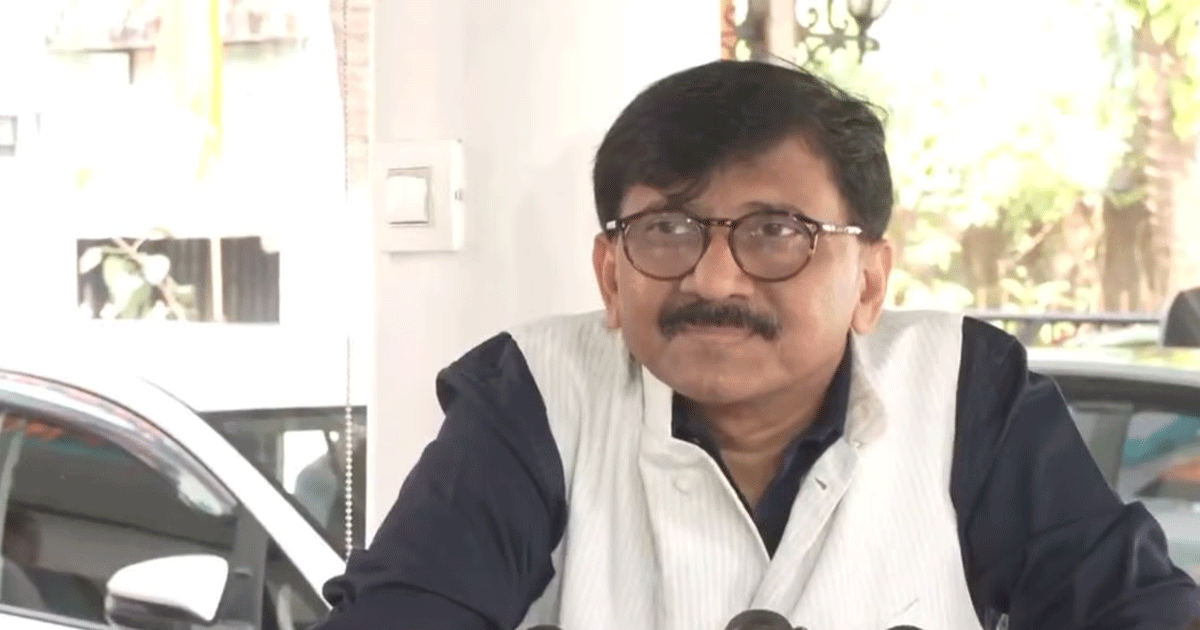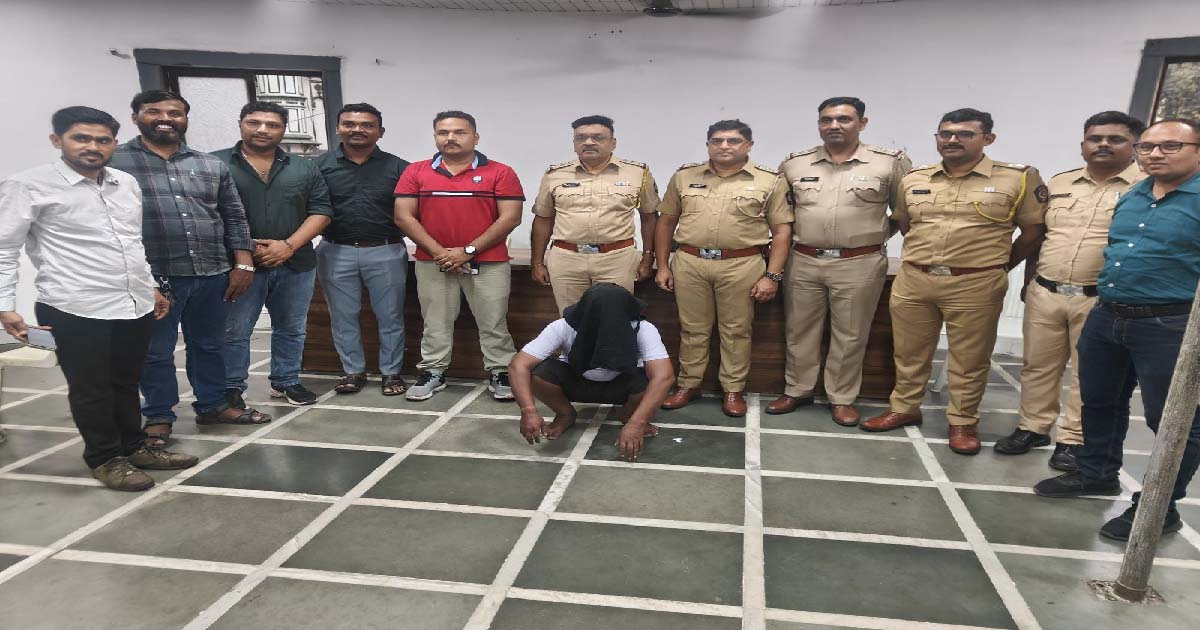Maharashtra
Sanjay Raut Demands President’s Rule In Maharashtra As Mahayuti Fails To Form Govt Before End Of Assembly Term On Nov 26 Despite Landslide Victory;

Shiv Sena (UBT) leader and Rajya Sabha MP Sanjay Raut on Wednesday called for the implementation of President’s Rule in Maharashtra following the end of the Assembly’s term on November 26.
Speaking to the media, Raut criticised the Mahayuti alliance’s inability to form a government despite securing a huge victory in the Assembly elections. He said, “They (Mahayuti) have got a massive majority, yet they have neither decided on the Chief Minister nor formed a government. When we were hopeful to form the government, we were told that if we failed to do so by November 26, President’s Rule would be imposed.”
Mahayuti Stalemate
The Mahayuti alliance, which won over 230 seats in the 288-seat Maharashtra Assembly, has yet to declare the next chief minister of the state. According to sources, while the alliance has decided on the chief minister, discussions over portfolio allocation among the BJP, Shiv Sena, and NCP are delaying the announcement.
Once an agreement is reached, the new Chief Minister of Maharashtra will be officially announced, sources confirmed.
Raut Alleges EVM Manipulation, Demands Ballot Paper Voting
Raut also raised concerns over alleged Electronic Voting Machine (EVM) manipulation, claiming that it played a role in the defeat of the Maha Vikas Aghadi in the recent elections. He remarked, “We have been raising the EVM issue for the last 10 years. When Congress was in power, the BJP questioned EVMs. Listen to Modi’s old speeches—he called EVMs a fraud. If EVMs are removed, BJP won’t win even 25 seats in the entire country.”
He further urged the Election Commission to revert to ballot paper voting, stating, “Conduct the elections on ballot papers, and whatever the results, we will accept them.”
Is Government Formation Mandatory?
According to legal experts and reports, including one by News18, there is no constitutional requirement for a government to be formed before the end of the Assembly’s term. President’s Rule does not automatically come into effect if a government is not in place by the deadline.
Historical precedents show instances where governments were formed or Chief Ministers were sworn in after the term of the Assembly.
Maharashtra
Govandi is changing: Successful Talent of Govandi Festival filled with children’s artistic talents

Govandi: With the aim of changing the negative image of Govandi, notorious for drug addiction and crime, and providing a bright future for the children here, the Abu Asim Azmi Foundation, led by local MLA Abu Asim Azmi, has taken a big step. The foundation recently successfully organized the “Talent of Govandi Festival”, which was going on for the past one month.
The festival organized various competitions related to education, sports, skills and talents. Thousands of children from Govandi, Mankhurd, and Shivaji Nagar enthusiastically participated in more than 17 competitions, including singing, dancing, drawing, speech, mehndi, recitation, naat, handicrafts, rangoli, carom, boxing, cricket, volleyball, badminton, karate and poetry. The children performed brilliantly by showcasing their talents and hard work. The new and hidden talents of Govandi were introduced not only locally but also internationally. On this occasion, those IAS officers who added to the glory of Govandi were also honored. MLA Abu Asim Azmi, motivational speakers Sir Awadh Ojha and Sana Khan, and social media influencer Faizo among other dignitaries were present at the event. All of them encouraged the children and gave them prizes. The main objective of the festival was to encourage children to stay away from drugs and choose a better life and make their future bright, through which the talents of the children of Govindi were introduced to the whole world.
Maharashtra
Accused wanted in Madhya Pradesh murder arrested after 7 years from Dhoni

Mumbai: Paidhoni Police Station has traced the accused who was absconding for 7 years in a murder case in Madhya Pradesh and handed him over to the Madhya Pradesh Police. 6 November
From Katni district of Madhya Pradesh, Police Sub-Inspector Rishabh Singh Baghel, Dilip Kaul of Barhi Police Station informed Paidhoni Police that a case has been registered under sections 302, 294, 323, 324, 506, 147, 148 of the Indian Penal Code at Barhi Police Station, Katni district, Madhya Pradesh. The accused in this case is wanted for the last 7 years and is still hiding in the limits of Paidhoni Police Station in Mumbai, help has been sought from the police to trace him. This was informed to Hon. After which the higher officers were informed about this and the above wanted accused was searched and he was detained from the footpath near Balgi Hotel, P.D. Melo Road, Masjid Bunder East, Mumbai. Later he was brought to the Paidhoni Police Station and interrogated regarding the crime. Since there was evidence of his involvement in the crime, the said accused was handed over to the police team at the above police station, district. Katni and they took him to the Barhi Police Station. Where further investigation is underway. The accused has been identified as Raja Ram Ramadhar Tiwari, 35 years old. With the cooperation of the Mumbai Police, the Madhya Pradesh Police solved the case and the wanted accused has been arrested on charges of murder.
Maharashtra
Mumbai Weather Update: City Wakes Up To Clear Skies, Mild Breeze; Overall AQI Stays In Moderate Range At 78

wether
Mumbai: After weeks of unsettled weather and intermittent showers, the city finally woke up to clear skies and crisp air on Thursday, marking what appears to be the end of the monsoon season. For the past two days, no rainfall was recorded across Mumbai, signalling that the retreating monsoon clouds have made way for the onset of post-monsoon conditions.
According to the India Meteorological Department (IMD), the city is expected to experience clear skies through the day, with only a minimal chance of isolated light showers or thunderstorms in select pockets. Daytime temperatures are likely to hover around 33°C, while the minimum will settle near 23°C, conditions described as pleasant and comfortable for early November.
The recent spell of short but intense showers had not only brought temporary relief from humidity but also helped wash out accumulated pollutants, leading to an overall improvement in air quality. Prior to this, the withdrawal of monsoon winds had caused a spike in pollution levels due to stagnant air and increased vehicular emissions, resulting in a hazy skyline and reduced visibility.
Fresh data released by AQI.in on Thursday morning reflected this improvement. Mumbai’s overall Air Quality Index (AQI) stood at 78, placing it in the moderate category. While the figure marks a slight dip from the good air quality recorded earlier in the week, it still represents a substantial improvement compared to the smog-filled conditions observed after monsoon withdrawal.
Residents across various parts of the city reported clearer skylines and visibly better air. Among the city’s monitoring stations, Wadala Truck Terminal recorded the highest AQI reading at 92, followed by Parel-Bhoiwada (90) and Mulund West (88). Santacruz East and Bhandup West both registered an AQI of 87, keeping them within the moderate range.
Cleaner air was observed in several western suburbs, where Kandivali East recorded an AQI of 45, falling in the good category. Malad West (59), Powai (62), Jogeshwari (65), and Borivali East (67) were all categorised as moderate, suggesting a consistent improvement across the city’s landscape.
As per AQI.in’s classification, an index between 0–50 is considered “Good,” 51–100 “Moderate,” 101–150 “Poor,” 151–200 “Unhealthy,” and anything above 200 is deemed “Severe” or “Hazardous.”
-

 Crime3 years ago
Crime3 years agoClass 10 student jumps to death in Jaipur
-

 Maharashtra1 year ago
Maharashtra1 year agoMumbai Local Train Update: Central Railway’s New Timetable Comes Into Effect; Check Full List Of Revised Timings & Stations
-

 Maharashtra1 year ago
Maharashtra1 year agoMumbai To Go Toll-Free Tonight! Maharashtra Govt Announces Complete Toll Waiver For Light Motor Vehicles At All 5 Entry Points Of City
-

 Maharashtra1 year ago
Maharashtra1 year agoFalse photo of Imtiaz Jaleel’s rally, exposing the fooling conspiracy
-

 National News1 year ago
National News1 year agoMinistry of Railways rolls out Special Drive 4.0 with focus on digitisation, cleanliness, inclusiveness and grievance redressal
-

 Maharashtra12 months ago
Maharashtra12 months agoMaharashtra Elections 2024: Mumbai Metro & BEST Services Extended Till Midnight On Voting Day
-

 National News1 year ago
National News1 year agoJ&K: 4 Jawans Killed, 28 Injured After Bus Carrying BSF Personnel For Poll Duty Falls Into Gorge In Budgam; Terrifying Visuals Surface
-

 Crime1 year ago
Crime1 year agoBaba Siddique Murder: Mumbai Police Unable To Get Lawrence Bishnoi Custody Due To Home Ministry Order, Says Report












